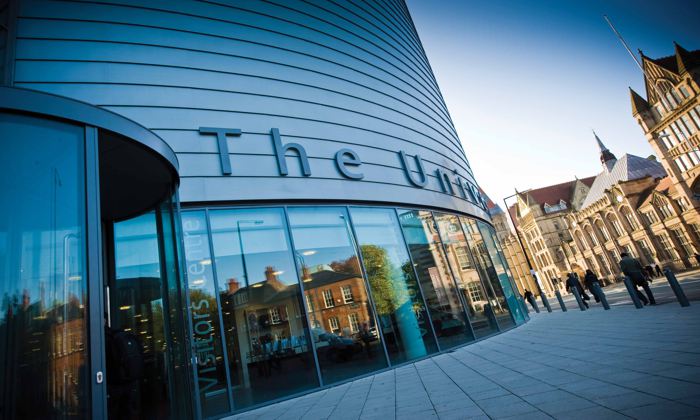Our University's financial performance 2021/22
01 Dec 2022
A message from Professor Nancy Rothwell, President and Vice-Chancellor, and Carol Prokopyszyn, Chief Financial Officer

We have published our 2021/22 Financial Statements and a summary.
The 2021/22 year was marked by a number of global challenges. The University moved quickly to adapt and provide immediate support to our staff and students while engaging in an ongoing reprioritisation of activities in line with our strategic plan (Our future). This required an extraordinary effort from colleagues across the University, for which we are very grateful.
Russia’s unprovoked attack on Ukraine brought further turmoil. Although the COVID-19 pandemic remained a threat during the first half of the year, life for staff and students has returned to a greater normality. During the year further periods of industrial action took place and we sought to minimise the impact of any disruption to teaching and learning.
The rapidly rising cost of living is a cause for serious concern – we do not underestimate the difficulties it is creating for our community and wider society. We have introduced numerous financial and non-financial measures to help alleviate the pressures.
Against this backdrop, our financial results covering the 12 months to 31 July 2022 are strong. We report an improved adjusted operating surplus of £119.7m (9.8% of income) compared to £61.4m (5.6% of income in 2020/21). This is partly due to ongoing delays in spending post-COVID and much higher than usual staff vacancies which is negatively impacting on staff workloads and delivering our core mission. Labour shortages are a national phenomenon.
The operating surplus has been adjusted to exclude the impact of a one-off non-cash charge of £219.5 million in relation to the Universities Superannuation Scheme (USS) which recently extended the deficit recovery period by ten years.
Although we face challenging times ahead with inflation outstripping the funds, this surplus will as always all be ploughed back into essential investment in the University. Even surpluses at the level achieved in 2021/22 are not nearly enough to fund all the developments we need, including in areas such as IT and advancements in systems and processes that are desperately required to improve our student experience, reduce staff workloads, deliver savings and help us to deliver our core goals.
Our planned investments, which are limited by cash, exclude major capital investment (for example improvements to the library and student residences). We have insufficient funds for many of our essential long-term maintenance requirements and our cash and borrowing limitations mean we can barely address the critical investment needed to meet our zero carbon goals. We will need to seek funding for these important ambitions from elsewhere.
More broadly the Higher Education sector faces an unsustainable financial future as the UK £9,250 undergraduate fee is now worth c.£6,500 in real terms compared to when it was introduced and our research is underfunded (about 30% on average) across the Russell Group. Our international tuition fee income, which ensures that we generate an overall marginal operating surplus, also faces risks from geopolitical tensions and speculation about Government policy on immigration.
Despite these significant challenges, we will be relentless in pursuing our ambitions and ensuring our University remains strong and financially sustainable.
Professor Dame Nancy Rothwell, President and Vice-Chancellor
Carol Prokopyszyn, Chief Financial Officer
- The glossary in the summary includes an explanation of terms in italics.
